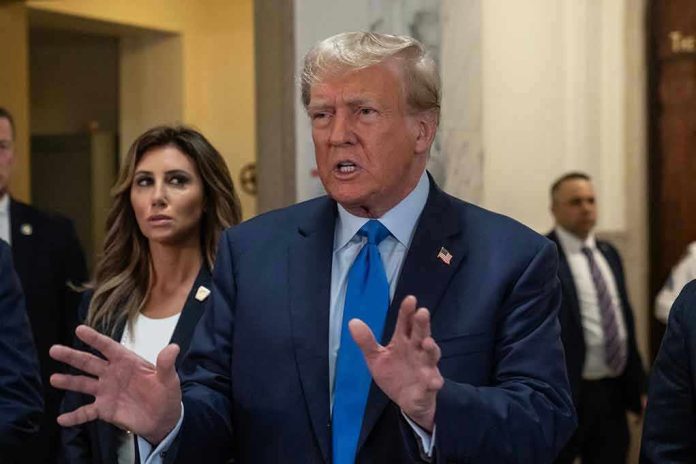
Six Democrat lawmakers are now urging the U.S. military to defy President Trump, escalating a dangerous standoff that could undermine our constitutional order and the very foundation of civilian control over the armed forces.
Story Snapshot
- Democrat lawmakers released a video telling the military to refuse “illegal” orders from President Trump
- Trump labeled their actions as seditious and called for their arrest and even execution
- The White House defended Trump, warning that the Democrats’ message threatens the military chain of command
- This confrontation exposes deepening partisan divides and raises new alarms about the erosion of American institutions
Democrat Lawmakers Urge Military Disobedience, Triggering Constitutional Alarm
Six Democrat members of Congress, all with national security backgrounds, released a video message directly addressing U.S. military personnel. Their message: refuse to carry out any orders they consider “illegal” from President Trump.
This unprecedented move bypasses the chain of command and places active-duty service members in a precarious position—caught between their oath to the Constitution and a political crossfire. For many Americans, especially those who cherish the stability and discipline of our armed forces, this raises red flags about civilian interference and the undermining of military unity.
President Trump responded swiftly and forcefully on social media, denouncing the lawmakers’ video as “seditious behavior, punishable by DEATH.” He called for their arrest and even suggested execution, igniting a fierce debate over the boundaries of political speech and the responsibilities that come with public office.
The White House stood firmly by Trump, emphasizing that the president has not issued any illegal orders and condemning the lawmakers for what they see as a reckless and dangerous provocation. This defense underscores the administration’s commitment to upholding the constitutional role of the Commander-in-Chief and preserving the chain of command that has kept the military above partisan politics.
Chain of Command and the Dangers of Political Interference
The U.S. military operates under a strict hierarchy, with the President serving as Commander-in-Chief and all service members sworn to follow lawful orders. The Uniform Code of Military Justice and the Nuremberg Principles make clear that only lawful orders are to be obeyed.
However, public calls for military personnel to independently judge the legality of orders—especially from elected officials—risk eroding discipline and encouraging insubordination. Past warnings from military leaders have always stressed the need for lawful conduct, but rarely have politicians directly told the troops to disobey an elected president, setting a troubling precedent.
Historically, such confrontations have been rare and fraught with risk. Incidents like Watergate saw military leaders quietly preparing to resist illegal directives, but never with open calls from Congress for the military to defy presidential authority.
This latest episode comes amid intense political polarization, with both sides accusing each other of undermining democracy. The military’s apolitical stance is now under direct threat, as Democrat lawmakers risk pulling service members into partisan battles at the expense of national cohesion and readiness.
Escalation: Rhetoric, Security Concerns, and the Erosion of Norms
The fallout has been immediate and severe. Democrats condemned Trump’s rhetoric as reckless, warning it could incite violence or threats against elected officials. Security has been increased for the lawmakers involved, reflecting genuine fears for their safety.
Meanwhile, conservatives see the Democrats’ video as a direct attack on constitutional norms and an attempt to weaken the president’s lawful authority over the military. The White House maintains that encouraging the military to ignore the chain of command is itself a dangerous subversion of American principles, and that the lawmakers should be held accountable for sowing discord within the ranks.
Long-Term Risks: Civil-Military Relations and American Stability
This confrontation is about more than harsh words or partisan posturing. It strikes at the heart of American civil-military relations and sets a precedent that could haunt the nation for years. If politicians openly urge the military to pick and choose which orders to follow, the very concept of civilian oversight—and the unity of the armed forces—could unravel.
While legal scholars agree that unlawful orders must be refused, most warn that public, politically-charged campaigns to influence the military from Congress threaten the delicate balance that has preserved American democracy for generations. Both sides claim to defend the Constitution, but their actions risk breaking the guardrails that keep our republic safe.
Sources:
Trump defends ‘punishable by death’ comment, calls Democrats’ military video ‘seditious behavior’




